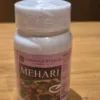Digestive Issues
Digestion
Digestion is the process of breaking down the food we eat into small molecules with the help of digestive enzymes and converted into nutrients and absorbed by the body from the bloodstream for the growth and repair of cells.
Digestion is a very important process because the carbohydrates, Proteins, fats, vitamins, and minerals received from the food are vital for the functioning of a healthy body. The parts of the digestive system which help in digestion are the mouth, esophagus, stomach, small intestine, pancreas, liver, and large intestine. They help in actions such as chewing, squeezing, and mixing with the help of digestive juices, such as stomach acid, bile, and enzymes, and these nutrients are stored in the liver processed, and delivered to the rest of your body when needed.
The hormones, nervous systems, and brain signals control the functions of digestive muscles to contract and relax to push food through your intestines. The digestive problems are the result of the structural or functional impairment of the digestive organs, differences in their nature of interaction; imbalance, or pathologies. They determine the symptoms like bloating, stomach pain, constipation, heartburn, anorexia, dyspepsia, gastritis, acid reflux, nausea and vomiting, chest pain, hiccups, abdominal pain, constipation, and the presentation of various diseases.
Digestion In Ayurvedic Perspective
The digestive process in Pranava Kerala Ayurveda Clinic is attributed to the proper functioning of the Agni (the digestive fire). Agni is maintained by Samana and Apana Vayu which are the subtypes of Vata located near Agni which help in the digestion and absorption of nutrients into the body and the release of waste products, Pachaka Pitta helps in the proper release of hormones and signals, and kledaka Kapha helps in the absorption of nutrients and moisturising the cells.
The faulty function of Apana Vayu results in bloating, constipation, and diarrhea, the faulty function of the Pachaka Pitta mainly causes indigestion, dyspepsia, gastritis, acid reflux, nausea, and vomiting. The imbalance of the Kapha results in the aama Doṣhā which gets accumulated as toxins in the body and blocks various channels which supply nutrients to different cells and tissues. It can vary from person to person depending upon the body constitution of Tridosha.
The Ayurvedic treatment aims to stimulate the Agni, balance the Doshas, and bring back the harmonious relationship between the organs and organ systems that aid in digestion.
The intensity of digestion problems in the UK population
Half of the UK population suffers from some kind of digestive problems during a year-round period. Bowel cancer and bowel diseases are alarmingly increasing at a rate of 1 in 20 people among the UK population according to the statistics. The changing food habits and the sedentary lifestyle choices can be considered the main culprit in these cases. The good news is that most digestive ailments are preventable.
The Ayurvedic screening programs are specially formulated to prevent the occurrence of diseases and cure them. Proper choice of food and proper way of eating is the key to successful nutrition. Take time to sit and relax and then have your food because fuzzy eating without proper chewing hinders digestion. Cereals, fruits, vegetables, grains, oats, pulses, and juices should be included in the diet. It’s not the quantity of food that matters but the quality of food.
A good choice of nutritious food helps in the building up of essential components of the body and maintaining the ph balance of the system. The ph balance is very important because most of the digestive enzymes get denatured in a high or low PH environment as they are very sensitive to ph.
Significance of Panchakarma and pH balance
Panchakarma will help to cleanse and rejuvenate the whole system by clearing out Ama, the toxin which is the root cause of the pH imbalance in the body. The preparatory procedures like Snehana (oleation) and Swedana (fomentation) can be used judiciously according to the clinical condition under the guidance of an Ayurvedic practitioner. Following the preparatory procedures, one should go through Vamana, Virechana, vasthi, and Nasya. The diseases eliminated through the Panchakarma are supposed to be removed from their grass root level.
Vamana: Vamana helps in the digestive issues related to Kapha; once the preparatory procedures are done Vamana will help in the elimination of toxins through vomiting. Herbal powders, decoctions, milk, and other patient-friendly palatable medicines are used for this purpose. It mainly acts on the stomach and upper duodenum
Virechana: Virechana is mainly Pitta Samana and acts till the intestines. Also in the process of formation of toxins, blood is vitiated. Through Virechana we can achieve an optimized quality of fluid volume. Virechana helps in clearing out the obstruction of channels through the elimination of morbid Doshas through the act of purgation. Virechana has a high impact on neuronal systems. It helps in the reduction of fasting and postprandial blood sugar, cholesterol, triglycerides, and an increase in HDL level which can provide you with additional benefits.
Vasthi: Vasthi has a direct effect on Vata, the controlling factor of all other Doshas and dhatus. The medicines of the Vasthi once injected get absorbed and release molecules that act as drug carriers and help in breaking the pathology of the disease. The effect varies according to the nature of Vasthi and the medicine used.
Nasya: Nasya interacts with the endocrine functions and balancing of hormones, and helps in controlling the emotional and behavioural forms. Many herbal formulations like oils, decoctions, asanas, and powders can be used for therapeutical purposes.
Along with the Panchakarma treatment, various medicinal herbal preparations can also be used in the form of decoctions, powders, tablets, oils, and ghee to deal with digestive disorders.
Experience the positive vibes from Pranava Kerala Ayurveda Clinic for your final relief from digestive disorders.
To find out more about how Ayurveda can help with the above condition, visit Pranava Kerala Ayurveda Clinic or call 0208 907 7902 to book an appointment with an expert Ayurvedic Practitioner.
Medical Advice Disclaimer
DISCLAIMER: THIS WEBSITE DOES NOT PROVIDE MEDICAL ADVICE
The information, including but not limited to, text, graphics, images and other material contained on this website are for informational purposes only. No material on this site is intended to be a substitute for professional medical advice, diagnosis, or treatment. Always seek the advice of your physician or other qualified healthcare providers with any questions you may have regarding a medical condition or treatment and before undertaking a new health care regimen, and never disregard professional medical advice or delay in seeking it because of something you have read on this website.




